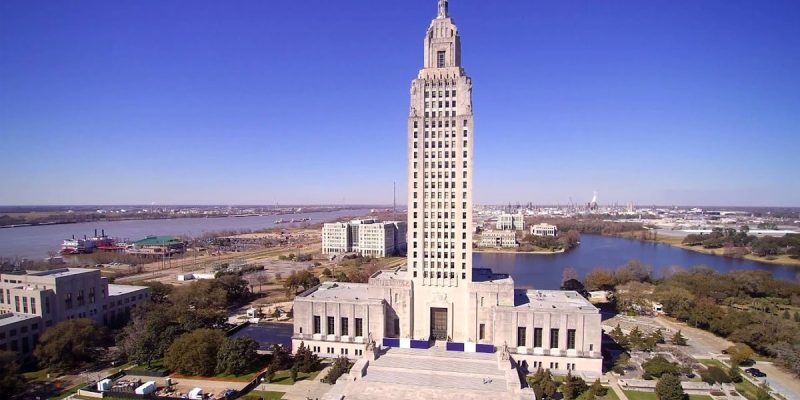Perhaps the Louisiana Legislature will blaze yet another new trail this month, in two ways dealing with gubernatorial vetoes in a likely override session.
This branch of state government, with each chamber now controlled by Republican supermajorities, began making history in 2021 when for the first time it cued up a veto session in response to Democrat Gov. John Bel Edwards vetoing high-profile popular bills passed by large majorities. With the House GOP then a bit below supermajority status required to meet override vote goals, it failed to repair the damage.
But it succeeded in 2022 when it had another veto session, although attached to a special session that led to the former occurring during the period allotted to the regular session. There, it went one-for-one in restoring congressional maps Edwards had vetoed.
Now it has a chance to undo vetoes in a veto session attached to the regular session. This year, Edwards struck at several high-profile popular bills passed with supermajority votes to spare. This almost guarantees by the end of this week fewer than half of legislators in both houses will turn in ballots asking to forgo the session, meaning it will happen.
And once there, because of the nature of these – protecting children, parents, teachers, among other items – with such majorities, and in an election year where several legislators know a vote to sustain likely will cost them reelection, it’s very likely overrides will succeed on multiple bills. However, that’s not all the groundbreaking that could occur.
Among the three vetoes ever overridden under the 1974 Constitution, none have been of the line-item variety. That could change this month, because legislative leaders in their zeal to enforce discipline left the door open to this.
Traditionally, until recently the Legislature would pass the capital outlay bill (and usually another supplemental one, if not including some capital items in the general appropriations bill) late in the session and oversubscribed. That meant the governor could wait until after the session to cast vetoes, thereby requiring a veto session to override. It also meant that as the total amounts of all projects exceeded the amount of capacity for bond sales, the State Bond Commission would have to pick and choose which to forward among those of the highest priority ranking.
Legislators have liked doing this especially in election years to create the impression they bring home the bacon, even though some projects won’t get funded on the intended timeline and, if conditions change, possibly at all. But in 2020, awash in cash from the federal government overreacting to the Wuhan coronavirus pandemic, the Legislature didn’t oversubscribe. Plus, until Edwards’ terms governors had enough clout to control the SBC, but his increasingly leftist governance alienated enough other panel members, comprised mostly of other Republican and executive and legislative branch elected officials, to have its GOP members control of it.
Advertisement
While since 2020 oversubscription has returned, Edwards hasn’t controlled the SBC to pick and choose projects to pursue, thereby exercising a kind of indirect veto. This left upfront vetoes, which in 2021 were acknowledged in the veto session but not acted upon. But in 2022 he was foiled when the Legislature passed the capital outlay bill early enough so that overrides would have been considered during the regular session, and he cast no line-item vetoes.
However, 2023 returned to the pattern of oversubscription and late outlay bill passage, allowing Edwards to cast a slew of project vetoes, aimed almost exclusively at fiscally- and socially- conservative Republicans, after the session. This happened with the tacit cooperation of the nominally GOP chamber leadership who wanted bigger government to give party members pork bragging rights for reelection.
The question is whether enough members want to have their cake and eat it as well. The punished Republicans who voted for fiscal restraint and/or brought successfully bills that shamed Edwards and legislative liberal Democrats could have their projects restored, for two reasons. Senators who went along with bigger government lost those vetoed projects in their districts anyway and would like to seem these restored. Also, unpunished GOP representatives may realize that if they don’t help out their afflicted colleagues now that in the future they could wind up on the short end of leadership power plays and would need similar help to rescue their projects.
Benjamin Franklin’s wisdom may prevail this year for line-item vetoes: legislators must all hang together, or most assuredly they shall all hang separately. A single override of this nature would make double history.
Advertisement
Advertisement

